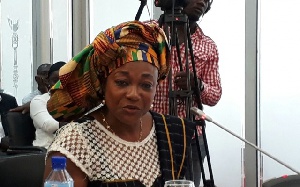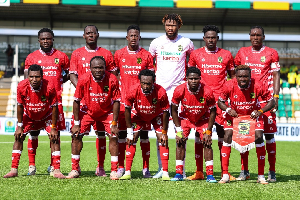Ms Otiko Afisah Djaba, Minister of Gender, Children and Social Protection (MGC&SP) said, it was imperative to acknowledge the contributions, wisdom, dignity and needs of senior citizens.
She said as Ghana marked the 27th celebration of the International Day of Older Persons, which is a unique day for senior citizens all over the world; it was imperative to rededicate our efforts and resources to ensure their well-being.
The MGC&SP as the key Ministry responsible for senior citizens has been celebrating this day since 2013 and continue to show commitment to its mandate by ensuring the promotion and protection of the welfare of our elderly.
“The Aged Persons Bill which is being developed by the Ministry will soon be presented to Parliament to guarantee the rights of older persons in Ghana by law.”
A statement signed by the Minister and copied to the Ghana News Agency in Accra, said since its institution on December 14, 1990, the day was celebrated on every 1st October annually to recognize the contributions of older persons and to address issues that affected their lives.
This year’s celebration is on the theme: “Stepping into the Future: Tapping the Talents, Contributions and Participation of Older Persons in Society.”
The statement noted that this year’s theme was carefully selected to embark on a new agenda and way of thinking about old age and reflect on the role and contributions in the past, the present and future, and what could be done to sustain their support for socio-economic development.
The statement said 2017 was the time to critically examine old age as a phase of human development with its own developmental potentials and challenges and the roles we all needed to play in Ghana, 60 years on.
It said for everyone born, old age would occur if one lives long enough, thus, it was in our collective interest to prepare adequately for this natural progression of life as the global community was ageing.
The statement added that Information made available by the United Nation Division for Social Policy and Development Ageing showed that, the number of older persons worldwide was set to increase by 56 per cent from 901 million to more than 1.4 billion between 2015 and 2030 when the Sustainable Development Goals were to be achieved.
“By 2030, the number of people aged 60 and above will exceed that of young people aged 15 to 24.”
It said it was important to appreciate that, in development terms these projections constituted both an opportunity and a threat.
According to the statement, an ageing population was associated with a number of risks, including higher health and care service costs, which imposed excessive labour burdens on the working age populations.
It said the experiences of many developed countries across the world have shown that, given the right mix of appropriate measures, older persons continue to make invaluable contributions to national development in all sectors.
On that note, the statement calls for the promotion of the right mindset and a national dialogue for sustainable ways of ensuring the full participation of older persons in our cultural, economic, civic and political development.
The statement said the Aged Persons Bill when it becomes an act, will pave the way for the creation of the National Council for Aged Persons to ensure the mainstreaming of ageing issues into our national development agenda.
“The Act will also lead to the creation of the Aged Fund which will be used to conduct research and the development of social protection interventions for older persons in Ghana. We are currently in initial talks with partners about the establishment of nursing homes at the district level.”
It said plans were far plans advanced to introduce the Freedom card to replace the current Eban card uses by older persons to ensure they have priority access to public places.
General News of Tuesday, 3 October 2017
Source: ghananewsagency.org













